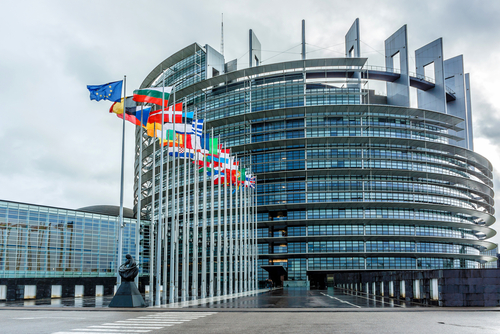Belgium, (Brussels Morning Newspaper) The budget that the MEPs will decide on today to support it has the proposed targeted revision of the Multiannual Financial Framework, but demands modifications to better reflect carbon price increases. Together with the Next Generation EU recovery instrument, the EU’s long-term budget 2021-2027 supports recovery from the COVID-19 pandemic and the EU’s long-term priorities across different policy areas like the development of geopolitics by the war in Ukraine.

On this topic for the newspaper spoke Jan Olbrycht MEP, co-author of a new Report on upscaling the Multiannual Financial Framework (MFF) 2021-2027 to be voted on by the European Parliament Thursday.
He said: “We have already ensured that the European Commission will bring forward the planned review of the EU’s long-term budget, the MFF, to the middle of next year.
“The revision in July 2023 must bring about substantial change, a full revision because we already know that our long-term budget is no longer fit for purpose. This Resolution is fact-based. It is not a political opinion. The Resolution, on which the European Parliament will vote tomorrow, shows areas where there simply is no more money left. It is squeezed to the limit. There are no more margins left in some places. We have particular concerns for cohesion policy, migration, and border management as well as external action, not to mention new priorities in defense cooperation, for example. It is high time that we face the current difficult circumstances and make a change. We need to adapt our financial planning to be ready to face these challenges head-on. I would also underline that while the Parliament has consented, Yes or No, vote on the MFF. But this Resolution proves that the Parliament will and does drive the EU’s budgetary planning and effect change. This Resolution is a prime example in that way, as it shows the Parliament already highlighting the urgent need for change to the MFF. Our clear message is: a revision is urgently required and must take place as soon as possible.” said the MEP.
Make sure the transition towards greener energy leaves no-one behind
MEPs demand that in the event of an increase in the carbon price to a level higher than the initial assumption in the proposal, an additional allocation should be made available for the Social Climate Fund on an annual basis to reflect the rate of increase, in order to further support vulnerable households and transport users in the transition towards climate neutrality.
Implementing the next generation of EU sources of revenue
The proposal introduces an automatic adjustment of the MFF ceilings based on new “own resources” which would allow for the repayment of NextGenerationEU borrowing, in line with the Commission’s commitment in the roadmap agreed with Parliament and Council in December 2020. Among these new income sources are a share of the revenues under the Emission Trading System (ETS) and from the Carbon Border Adjustment Mechanism, so this is also a vital step to ensure that the EU’s revenue is placed on a sustainable footing.
A necessary broader revision of the current Multiannual Financial Framework
To ensure the EU budget can meet the fast-evolving needs, MEPs also insist that a “broader revision of the current MFF is needed as it was already pushed to its limits in its first year”, pointing to the multiple crises and challenges that the EU has been addressing, in particular the war in Ukraine. The Commission should table such a legislative proposal “as soon as possible and no later than the first quarter of 2023”. In this context, work has already started in the Committee on Budgets on a resolution with the title “Upscaling the 2021-2027 Multiannual Financial Framework: a resilient EU budget fit for new challenges”.








